There’s something undeniably magical about the combination of sun, sand, and the sizzle of a grill. As the temperatures rise and the summer breeze beckons, many of us find ourselves drawn to the allure of beachside barbecues. But before you pack up your portable grill and head for the shore, it’s essential to ask: Can you grill on the beach?
In this guide, we’ll delve into the ins and outs of beachside grilling, exploring the regulations, best practices, and essential tips to ensure your seaside BBQ is a sizzling success. From choosing the right spot to mastering the art of fire safety, join us as we embark on a culinary adventure along the sandy shores.
How To Grill On the Beach?
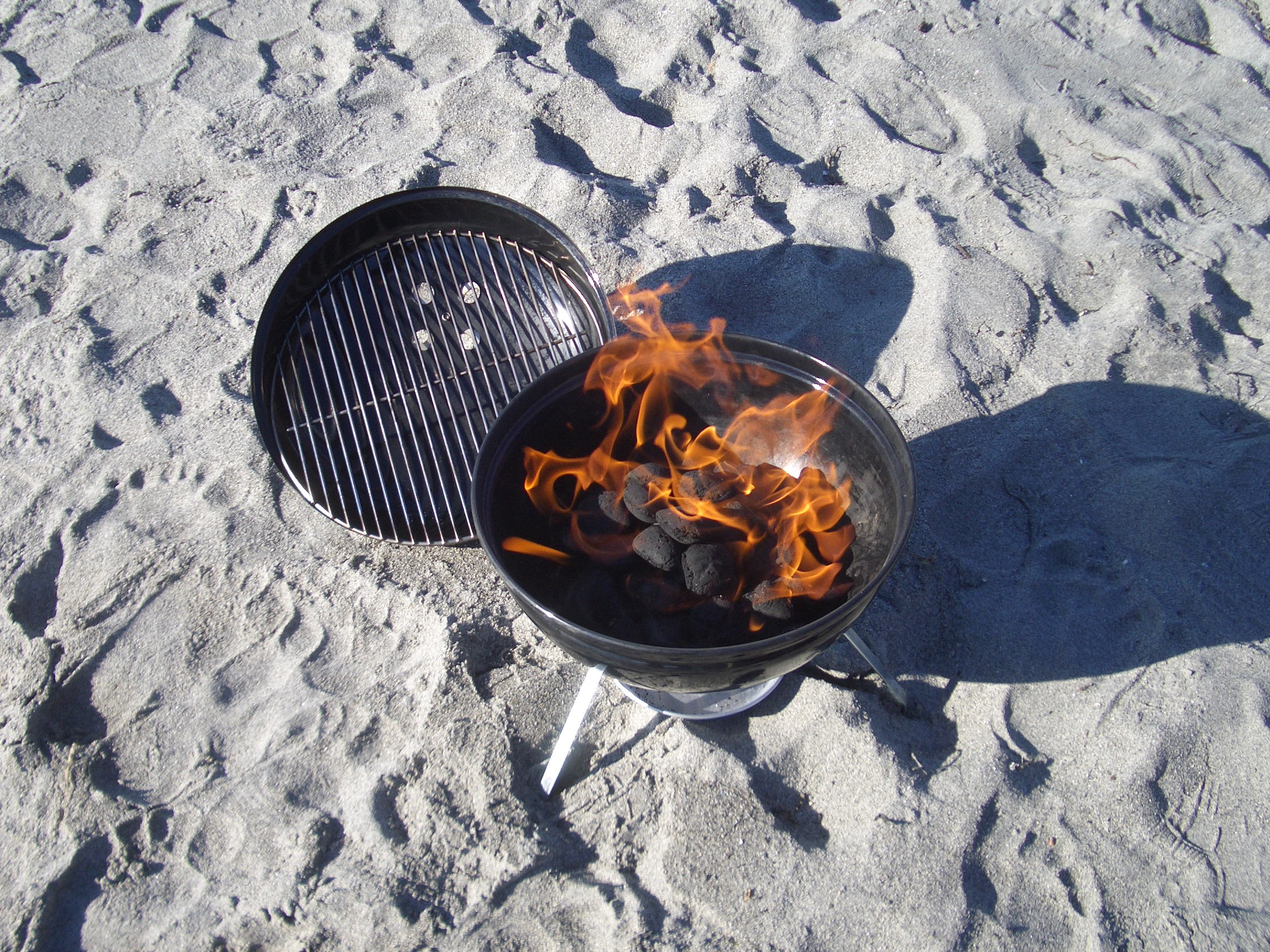
Grilling on the beach can be a fun experience, but it requires some planning and preparation to ensure safety and compliance with local regulations. Here’s a step-by-step guide on how to grill on the beach:
- Check Local Regulations: Before heading to the beach, research the specific regulations regarding grilling or cooking on the beach. Some beaches may have designated grilling areas or prohibit open fires altogether. Make sure you understand the rules and any permit requirements.
- Choose the Right Location: If the beach allows grilling, select a suitable location away from crowds, buildings, and vegetation. Look for designated grilling areas or open spaces with good ventilation to minimize the risk of spreading smoke.
- Bring the Right Equipment: Pack your portable grill or BBQ equipment, along with essential grilling tools such as tongs, spatula, and grill brush. Consider using a charcoal or gas grill designed for outdoor use, ensuring stability on the sand.
- Prepare Your Ingredients: Before heading to the beach, plan your menu and ingredients. Pre-marinate meats, chop vegetables, and pack any condiments or seasonings you need. Consider bringing pre-cut or pre-prepared items to minimize cooking time and cleanup.
- Pack Supplies: Besides your grill and ingredients, bring essential supplies such as charcoal, lighter fluid, matches or a lighter, aluminum foil, paper towels, cooking oil, and a cooler with ice to keep perishable items fresh.
- Set Up Your Grill: Once you’ve found a suitable location, set up your grill according to the manufacturer’s instructions. Ensure the grill is stable on the sand and away from flammable materials. If using charcoal, arrange the coals in a single layer for even heat distribution.
- Light the Grill: Use appropriate methods to light your grill safely. If using charcoal, avoid using excessive lighter fluid and allow the coals to ash over before cooking. Follow the manufacturer’s instructions for lighting and adjusting the flame for gas grills.
- Start Cooking: Place your prepared ingredients on the grill and cook them according to your recipes or preferences. Keep a close eye on the grill and adjust the heat to prevent burning or uneven cooking.
- Practice Fire Safety: Keep a fire extinguisher, bucket of water, or sand nearby in emergencies. Never leave a lit grill unattended; ensure it’s fully extinguished before leaving the area.
- Clean Up: After cooking, allow the grill to cool down before cleaning. Dispose of any charcoal ash or leftover coals properly, and pack out all trash and debris to leave the beach clean and pristine.
- By following these steps and being mindful of safety and environmental considerations, you can enjoy a memorable beach grilling experience with family and friends.
Some Tips For Grill At The Beach
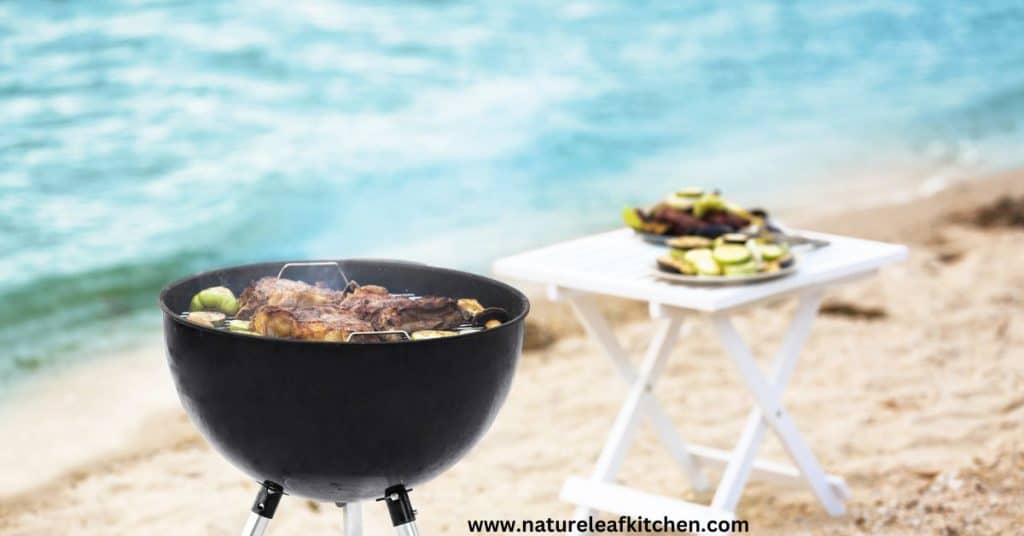
One of the best things about summer is enjoying delicious food cooked on the grill. However, your beach BBQ can quickly become a disaster if you’re not careful. Here are some tips for cooking great food on the grill at the beach:
- Start with a clean grill. It will help prevent sticking and ensure that your food cooks.
- Light it 15-20 minutes before cooking if you’re using charcoal. It will give the coals time to reach the perfect cooking temperature.
- Be careful not to overcook your food. Not only will this make it less tasty, but it can also be dangerous.
- Use a meat thermometer to check for doneness, and take food off the grill when it reaches the desired temperature.
With these tips, you’ll impress your guests with your beach BBQ cooking skills!
Read This Article: What To Put Under Grill On Grass?
Are You Allowed To Cook On The Beach?
Whether you’re allowed to cook on the beach depends on the specific regulations of the beach you’re visiting. Here are some general points to consider:
- Local Regulations: Different beaches have different rules regarding cooking or grilling on the beach. Some beaches may allow it with certain restrictions, while others may prohibit it altogether. It’s essential to check the local regulations before planning any cooking activities on the beach.
- Designated Areas: Many beaches have designated areas for cooking or grilling and are equipped with fire pits, BBQ grills, or picnic facilities. These areas may require reservations or permits for their use. Cooking within those designated zones is usually permitted if such facilities are available.
- Portable Cooking Equipment: If the beach allows cooking without designated facilities, you can use portable cooking equipment such as camping stoves or grills. However, always check the beach regulations regarding the use of such equipment, including any restrictions on fuel types (e.g., propane and charcoal).
- Safety Considerations: Regardless of whether cooking is allowed, safety should always be a priority. If you’re permitted to cook on the beach, ensure that you follow safe practices, such as keeping cooking equipment stable on the sand, maintaining a safe distance from flammable materials, and having a means to extinguish any fires if necessary.
- Environmental Considerations: Cooking on the beach can have ecological impacts, such as waste generation and potential damage to sensitive ecosystems. Always clean up, dispose of waste properly, and avoid disturbing wildlife or natural habitats.
- Local Authorities: If you need clarification on whether cooking is allowed on a particular beach, it’s best to check with local authorities or beach management beforehand. They can provide you with up-to-date information on any restrictions or guidelines.
In summary, while cooking on the beach may be allowed in some locations, it’s essential to research and adhere to local regulations and guidelines to ensure a safe and responsible experience for yourself and others.
Can You Light a BBQ On The Beach?

Yes, you can generally light a BBQ on the beach, but it depends on the specific regulations of the beach you’re visiting. Here are some details you might find helpful:
- Local Regulations: Before you plan a beach BBQ, it’s essential to check the local regulations regarding fires and grilling on the beach. Some beaches have strict rules against open flames due to safety and environmental concerns.
- Designated Areas: Many beaches have designated areas for grilling and bonfires. These areas have fire pits or BBQ grills and may require a permit or reservation. Make sure to inquire about these facilities when planning your beach BBQ.
- Portable Grills: You can use portable grills if the beach allows grilling without designated areas or facilities. However, be mindful of any restrictions on the type of permitted fuel (charcoal, propane, etc.) and ensure proper disposal of hot coals to prevent any accidents or environmental damage.
- Safety Measures: When lighting a BBQ on the beach, prioritize safety. Keep a fire extinguisher or a bucket of water nearby in emergencies. Ensure the grill is stable on the sand and away from flammable materials. Also, be considerate of other beachgoers and maintain a safe distance from them while grilling.
- Leave No Trace: Always clean up after your BBQ session. Dispose of charcoal and ashes properly, and pack out any trash or debris. Leaving the beach cleaner than you found helps preserve the environment and ensures a positive experience for future visitors.
- Weather Conditions: Be mindful of weather conditions, especially wind, and dryness, which can increase the risk of fires spreading. Avoid grilling on windy days or during periods of high fire danger to minimize the risk of accidents.
- Consideration for Wildlife: Beach ecosystems are often fragile, so be considerate of local wildlife and nesting areas. Avoid disturbing wildlife habitats and refrain from feeding animals or leaving food scraps behind.
Remember always to respect the rules and guidelines set by beach authorities to ensure a safe and enjoyable experience.
Can You Bring a Grill to the Beach In Massachusetts?
In Massachusetts, grilling is allowed on all public beaches, provided the grill is at least six feet away from combustible materials. Charcoal grills are the only type used on the beach, and wood fires are prohibited.
In Massachusetts, whether you can bring a grill to the beach depends on the specific regulations of the beach you plan to visit. Each beach may have its own rules regarding grilling and open fires. Some beaches may permit grilling in designated areas equipped with permanent grills or fire pits, while others may prohibit it altogether. If the beach allows grilling but doesn’t have designated facilities, you may still be able to bring a portable grill, but it’s essential to comply with any restrictions on the type of grill or fuel allowed.
Prioritize safety at all times, follow proper procedures for lighting and extinguishing the grill, and be mindful of the environmental impact of grilling on the beach. If you’re unsure about the rules at a specific beach, contact local authorities or management for clarification. Ultimately, it’s crucial to research and adhere to local regulations to ensure a safe and enjoyable beach experience.
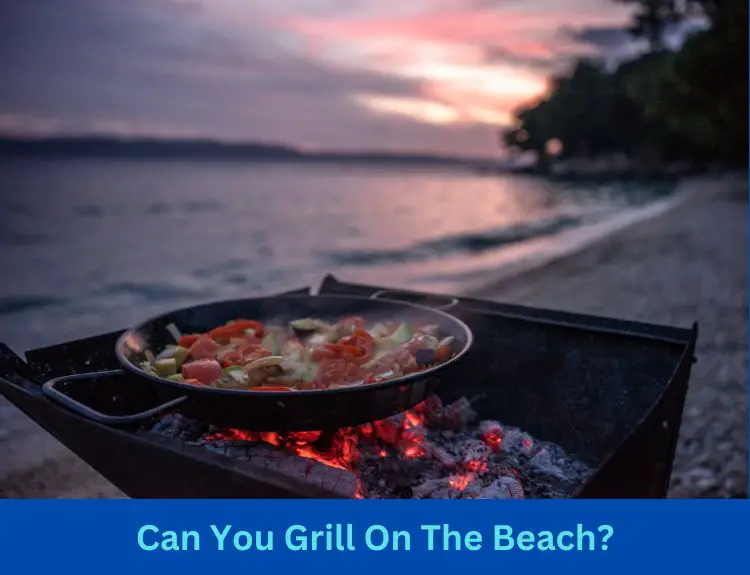
Can you grill on the beach in Florida?
Florida is a paradise for beach lovers and foodies alike. With its warm weather and abundant seafood, the state is an ideal destination for a beachside BBQ. However, there are some things to consider before grilling on the beach in Florida.
- First, it is important to check local ordinances to ensure that open fires are allowed on the beach where you will be cooking. Many beaches in Florida do not allow grilling due to the fire risk.
- Second, bring enough charcoal or propane to keep your grill going throughout the day. Nothing ruins a beach day like running out of fuel while cooking.
- Finally, remember to clean up after yourself when you’re done cooking. Be sure to dispose of all coals and trash in designated receptacles so that you can enjoy Florida’s beaches for years to come.
Read This Article: Best Electric Smokers Under 300$
FAQS
Can You Take A Grill To The Beach?
Conclusion:
While grilling on the beach may seem like a perfect summer pastime, there are some essential things to remember before you start cooking. By following these tips, you can enjoy a safe and enjoyable cookout on the beach. Always follow local ordinances and be aware of your surroundings when cooking outdoors. With these tips, you can grill safely and successfully this summer.
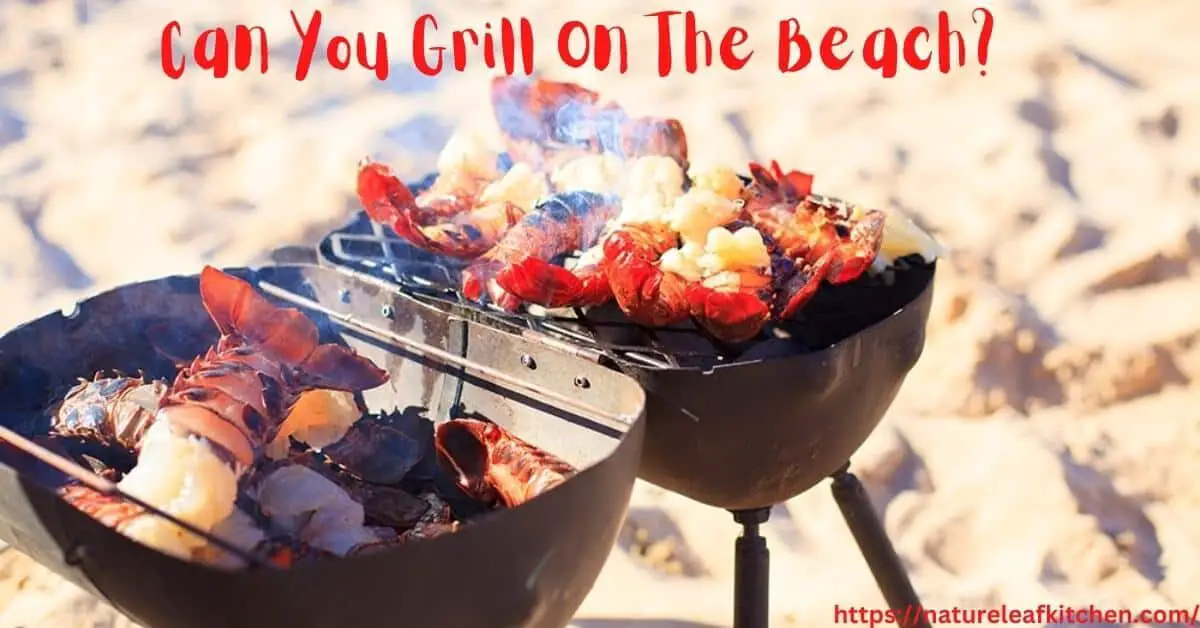
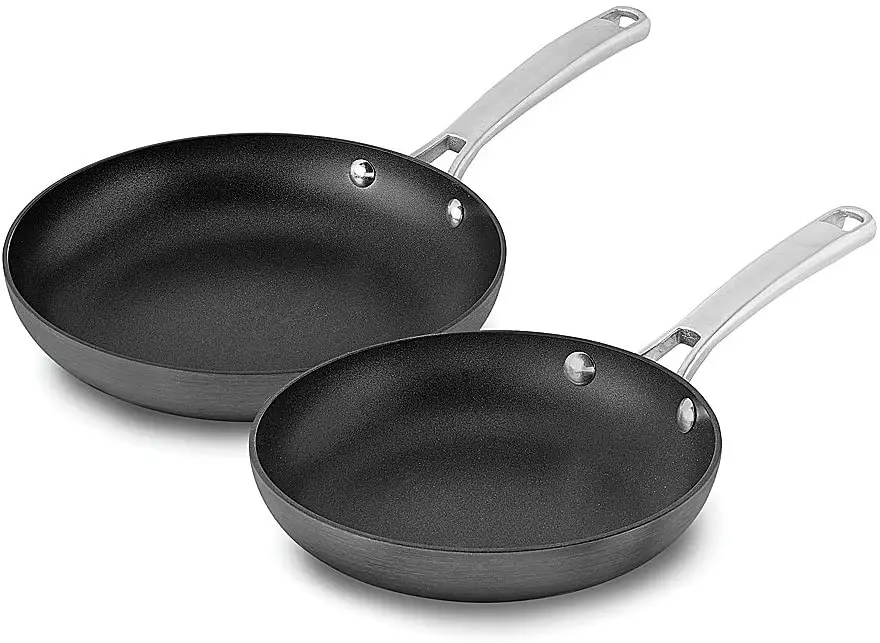
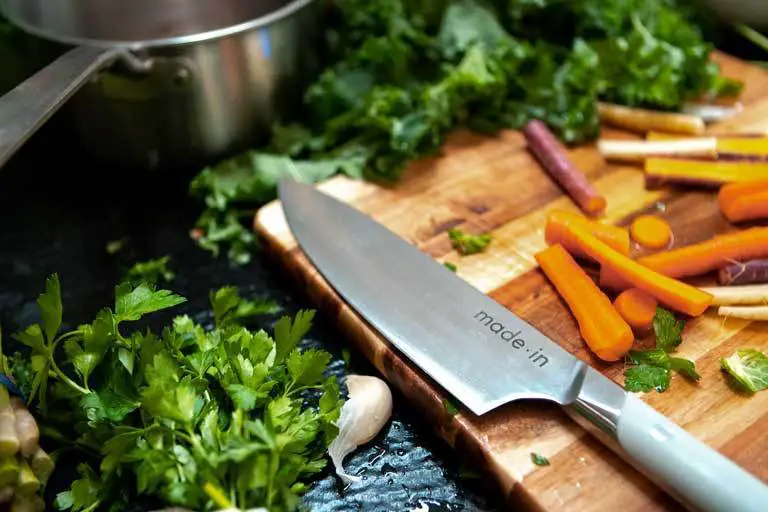


You’re a great.
Thanks man for your helpful idea.